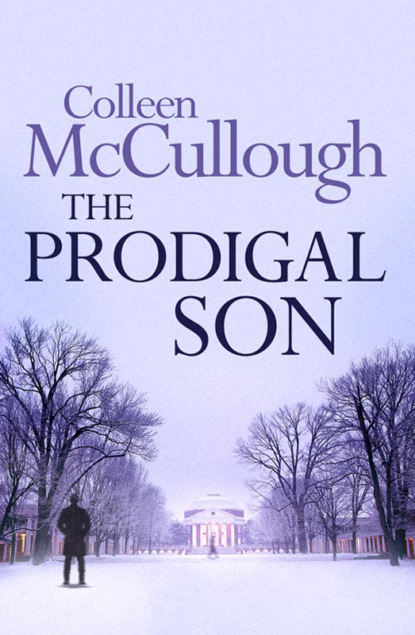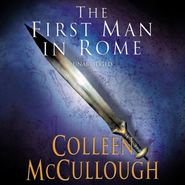По всем вопросам обращайтесь на: info@litportal.ru
(©) 2003-2024.
✖
The Prodigal Son
Автор
Год написания книги
2018
Настройки чтения
Размер шрифта
Высота строк
Поля
“She did exactly the right thing in reporting her loss,” Carmine said, voice level. “Had she concealed the theft, you might easily have missed a tetrodotoxin death at P.M. If the thief’s motive was nefarious, he was looking for a rare and undetectable poison. And that means he’s knowledgeable. A biochemist or biologist, or maybe a doctor.” Carmine frowned, toyed with his spoon. “Given Jim’s relationship to Millie, he’s out of the picture, and that means someone else knew about the tetrodotoxin.”
Patrick shivered. “Carmine, don’t! You’re talking as if the thief really does have murder in mind. I mean, this is all pure hypothesis! A bottle washer does her glassware once a week, there are electricians and plumbers—Millie doesn’t work in a vacuum.”
“Calm down, cuz, of course it’s hypothesis. We’ll cross the bridges as we come to them, but it never hurts to be fully prepared. I can already note that Dr. Millicent Hunter informed the Medical Examiner and the police that she found six hundred milligrams of tetrodotoxin missing from her laboratory refrigerator—what else could she have done? The substance wasn’t named, though it bore a generic poisons sticker—that really is suspicious, Patsy. She’s sure nothing else went missing—hang on.” Carmine slid out of the booth. “I’ll be back in a minute—and lunch is on me.”
Patrick watched his cousin say something to Luigi, who pushed a phone across the counter. Carmine made a couple of calls, the second one the longer of the two, then returned.
“Nothing else is missing, even sterile water. The substance in question was coded—no indication of its real identity.”
“So she can’t be blamed? Ought it to have been locked up?”
“Given that she locked her lab door even if she was only going to the bathroom, Judge Thwaites would probably rule that the circumstances of Millie’s research routine made locking it up unnecessary, given its anonymity. A white powder in a glass ampoule—it could be anything from cocaine to flour. Honest, Patsy, Millie’s okay.”
Carmine gave his cousin a look that held as much love as exasperation; one’s children caused torments and apprehensions just not possible in any lesser beings. Patrick was caught in the web of his fear for this most worrisome daughter.
“You know, I don’t label my stuff poison,” Patrick said.
“You don’t have to. Your lab is off limits to those who don’t have clearance, especially now there’s a viewing room two floors up for identification,” Carmine said comfortably. “All it took was the installation of an elevator shaft between your floor and ours.”
“I keep all the known poisons in a safe, of course,” Patrick went on, grappling the problem like a dog an old and meatless bone. “Trouble is, there are so many toxic ways to die, from Drano to household bleach. It used to be much easier when people just used rat or wasp poison—Carmine, don’t let life hurt my Millie yet again!”
“I’ll give it my best shot, I promise. How long have they been together now?”
“Eighteen years last September. They’re thirty-two.”
“What drew them together, Patsy?”
“I asked Millie that a long time ago, before they went to Columbia. All she said was that their eyes met.”
“Doesn’t happen that way for many.”
“Never did for me.” Patrick sounded desolate.
“Nor me, though I did love the color of Desdemona’s eyes. Like pack ice, that eerie blue.”
“I deemed them cold. That was why I disliked her.”
“We do go on the eyes, Patsy, no argument there.”
Patrick put his hand over Carmine’s on the table. “But not for a long time now, cuz. She’s a great woman, your wife.”
Carmine changed the subject. “M.M. whispered to me that the Chubb University Press expects Jim Hunter’s new book to be a popular bestseller. It’s about the hand of God in our design for life—I didn’t really get it, but M.M. says that anyone who reads the book will. He read it in manuscript and he’s wild about it. Lucky for Jim that Don Carter lasted as Head Scholar of C.U.P. through to the end of the publication process. Tom Tinkerman, the new Head Scholar, is not a Jim Hunter fan—too Christian in the orthodox sense, brands Jim an atheist.”
A look of horror flashed into Patrick’s eyes. “Carmine, no! Tell me things are going to continue to go well for Jim! He and Millie need to start a family soon, and they’re counting on extra income from book royalties—Don Carter gave him a generous contract, from what Jim said to me.”
“And Tinkerman can’t tinker with that, Patsy. I think M.M. is more concerned with making sure C.U.P. throws its weight behind Jim’s book,” Carmine said, wondering if there was anything that wouldn’t alarm Patsy when it came to Millie.
“Tinkerman is a sanctimonious pedant!” Patrick snapped. “Why the hell did the Chubb Board of Governors give him the Head Scholar’s job? He’s not equipped for it, Jim says.”
“From what M.M. told me, blame the Parsons. Man, that crew! I well remember them from the Hug case.”
“And I,” Patrick said, sounding grim.
“They have this collection of European art, reputedly the biggest and best in America,” said Carmine. “The head of the family bequeathed the collection to Chubb along with many millions in endowments, but he didn’t put a delivery date on the art collection. The surviving Parsons decided to keep the art. M.M. didn’t push, hoping that when they did deliver, they’d donate a gallery to hold the collection. Until the banker guy with the wrong last name had one drink too many at the last Parson meeting with M.M., and told him they figured they could hang on to the paintings for another fifty years.” The broad, handsome face broke into smiles; Carmine’s amber eyes glowed. “M.M. got his dander up—a very dangerous state of affairs.”
“Jesus!” Patrick’s breath escaped in a hiss. “Did the banker guy fancy suicide, or something?”
“Must have. M.M. announced that he’d sue very publicly unless the entire collection down to the last Leonardo cartoon was delivered to Chubb’s Curator of Art within a month. The Parsons were fucked, and knew it. Their revenge on M.M.? A new Head Scholar named Thomas Tarleton Tinkerman.”
“And here was I thinking federal politics were dirty!” said Patrick, grinning. “Still, not a victory for the Chubb University Press. Or Jim.”
“Care to bet how long Tinkerman lasts as Head Scholar? Not many moons beyond the receipt of the last Parson painting.”
“But too long for Jim,” Patrick said gloomily, “unless he can hold off on publishing.”
“I don’t pretend to be an expert on C.U.P., cuz, but I do not think that’s possible,” Carmine said, voice gentle. “Once a book’s in print, it takes up a lot of space. They ship it out.”
“I don’t think I’ll go on Saturday night.”
“Patsy, you have to go! Desdemona and I can’t wave all the flags for Jim,” Carmine said sternly. “What would Millie say if you and her mom weren’t there?”
“Pah!” The fresh, fair face screwed up in disgust. “Millie and Jim are the only reason I will be there, that’s for sure. It seems wrong to give a banquet in honor of someone whom not a soul wanted in the position—even, now you tell me, M.M. Though I guess the Parsons will be there to cheer for Tinkerman.”
“Bound to be.”
“At least it’s the relative comfort of black tie,” Patrick said, looking evil. “You won’t have to wear your dress uniform, just your academic robes.”
“You’ll be in the same boat, Patsy—academic robes.”
FRIDAY, JANUARY 3, 1969
“Think of this as good practice,” Millie soothed. “By the time the banquet rolls around tomorrow night, you’ll be a true veteran.” She made an adjustment to Jim’s tie and stepped back. “Perfect! So handsome! There won’t be anyone in your league.”
Sentiments that were, he knew after listening to them for eighteen years, utterly mistaken. His looks had improved out of sight, but he’d never be Harry Belafonte. The only reason he turned heads was the ravishing white woman on his arm.
Old enough now to be settling into his ultimate physique, Jim Hunter was several inches over six feet in height, had a neck so thick and strong that it tended to dwarf his head, massive shoulders and upper arms, and a barrel of a chest. When he walked he waddled thanks to bulging thighs, but the right knee injury that had put paid to any hopes of a football scholarship made him favor the right leg in a noticeable limp.
The face, to those seeking it atop so much raw power, used to be no disappointment, for it had been brutish. Jim Hunter’s skin was nigh impossibly black, as black as the blackest native African’s; when he was photographed, even in color, his face was so dark it lost whole layers of definition. To see what he really looked like necessitated seeing the living man. His bones were unobtrusive, the cheekbones flat, and his nose in the old days had splayed outward with hugely gaping nostrils. At St. Bernard’s he had instantly been nicknamed Gorilla, a huge insult compounded by his uprooted bewilderment, this all-white environment so far from home: the days of black immigration from the South were still to come, so he was a true novelty in Italian-American East Holloman. Adolescents are cruel; to find the Gorilla could ace them all in a classroom without even extending himself didn’t go down well. Nor, when almost immediately he took up with the St. Mary’s belle Millie O’Donnell, did that go down well. Add Jim Hunter’s temper plus his tendency to harbor grudges, and the pattern was set. He fought. Dozens of fights against ever-increasing numbers of opponents had eventually destroyed his superficial, even some of his deepest, sinuses as well as afflicted him with agonizing pain in his facial nerves. While the gorilla look grew worse.
Only John Hall’s loan of ten thousand dollars for surgical repair had saved Jim’s life, and in more ways than one. After the surgery the gorilla look had vanished; his nose was straight and quite narrow, its nostrils small and unobtrusive, he had bones in his cheeks and a good jawline. Finally his one great natural endowment, a pair of large, astonishingly green eyes, could come into their own and dominate his face beneath a high, broad brow.
But the psychic scars persisted down to this moment when his beautiful white wife tied his black tie and told him he looked so handsome. These were the great years of the Black Revolution, of last-ditch stands by fanatical whites against the inevitable opening up of all horizons to the black man, and Jim Hunter knew it, acknowledged it, even understood it. What he couldn’t shake off was his deep conviction that much of his own ordeal was due to his marrying a white prom queen. She had been with him since his fifteenth birthday, so much a part of him that she was a cause. A cause? No! The cause.
A sensible streak had whispered to Jim that, appearing so very African, he must not go the Afro route; his hair was close-cropped and he wore the apparel of a post-doctoral fellow—chinos, white cotton shirt, loafers, a beat-up tweed jacket.
Except when, as now, he was being squeezed into the biggest tuxedo the formal-wear shop hired out.
“Don’t flex your muscles,” Millie was warning.














